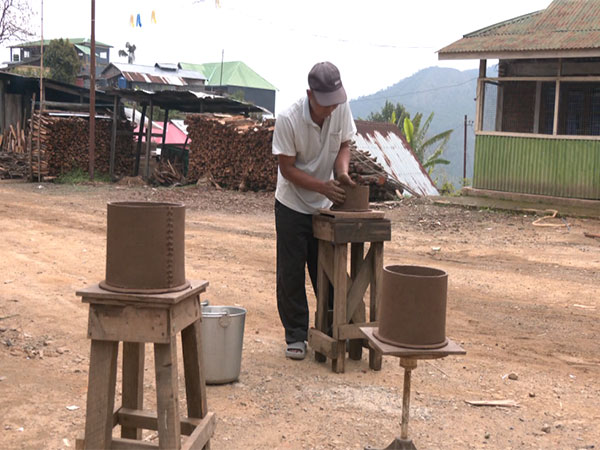Nungbi's Black Pottery: A Legacy of Tradition and Craftsmanship
Nungbi village in Ukhrul, home to the Tangkhul Naga tribe, is renowned for its unique black pottery. Handmade without a potter's wheel using crushed serpentine stone and clay, this craft supports 200 families and is gaining popularity for its eco-friendly, non-toxic attributes in India.

- Country:
- India
In the picturesque hills of Ukhrul district, Nungbi village stands as a testament to tradition and craftsmanship, being the cradle of the Tangkhul Naga tribe's renowned black pottery. This age-old craft, devoid of modern machinery like a potter's wheel, relies entirely on the skilled hands of artisans who mold vessels from a blend of crushed serpentine stone and natural clay.
The painstaking process, as local artisan Somi Sharon explains, involves collecting raw materials from deep forest regions, hand-pounding the stone into a fine powder, and mixing it with water to shape into utensils. These are then sun-dried and fired in traditional kilns, with over 200 families depending on this craft for their livelihood, exporting to various parts of India.
Artisan Thot Reiyo emphasizes that pottery is more than a means of income; it's a cultural heritage piece. With growing demand in cities like Delhi and Mumbai and potential to expand even with seasonal limitations, this craft is not only sustaining a community but also preserving a legacy of indigenous artistry.
(With inputs from agencies.)
ALSO READ
Tesla's Political Journey: From Eco-Friendly Innovation to Far-Right Symbol
Delhi Revolutionizes Education with Eco-Friendly CM Shri Schools
Turning Corn Husks Into Art: The Tale of Nelly Chacheya's Eco-Friendly Dolls
Innovation in Space Alliances and Eco-Friendly Diapers
The Partisan Divide: A Decade of Same-Sex Marriage in America










